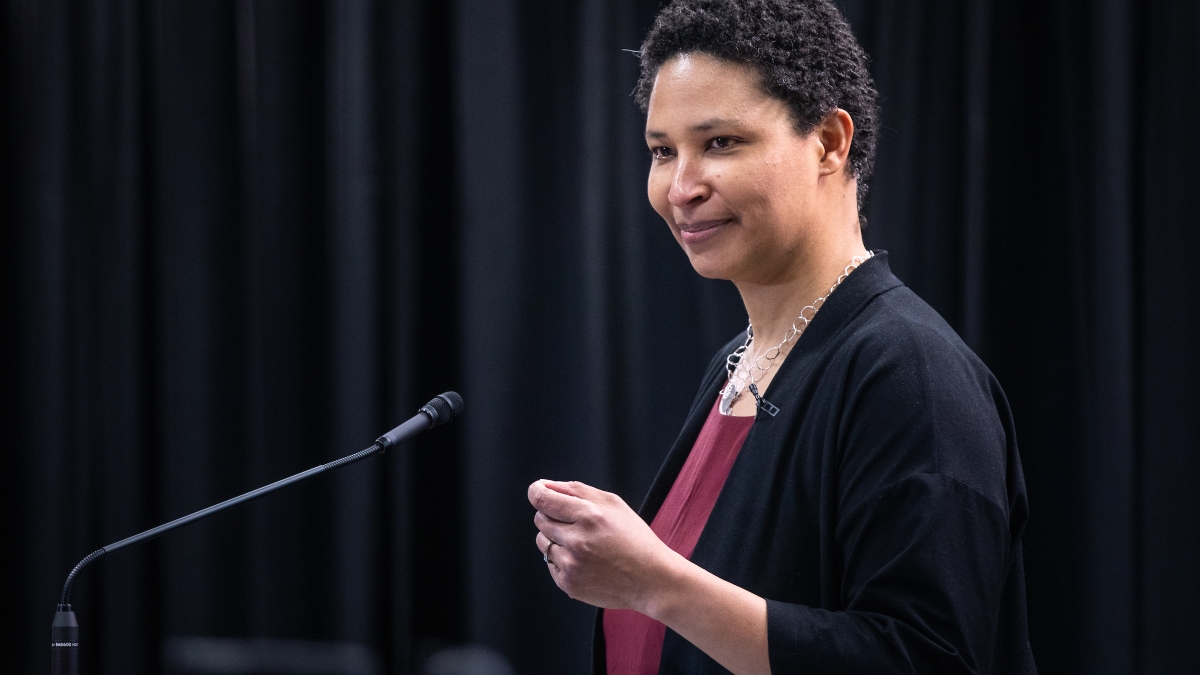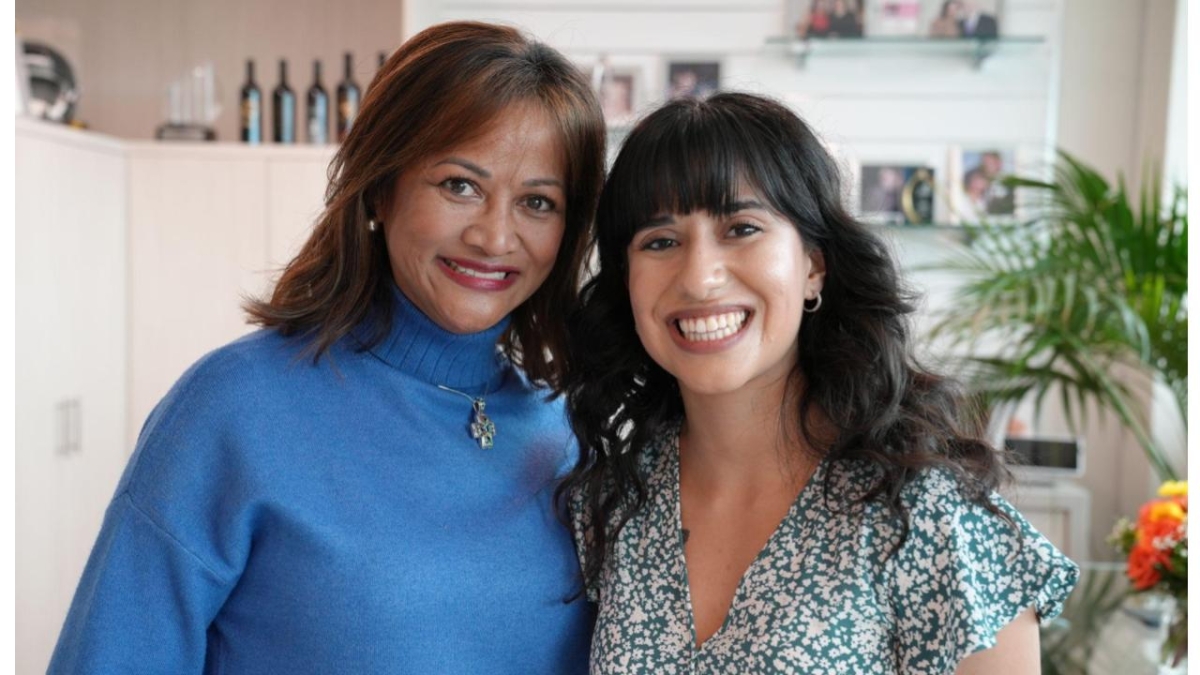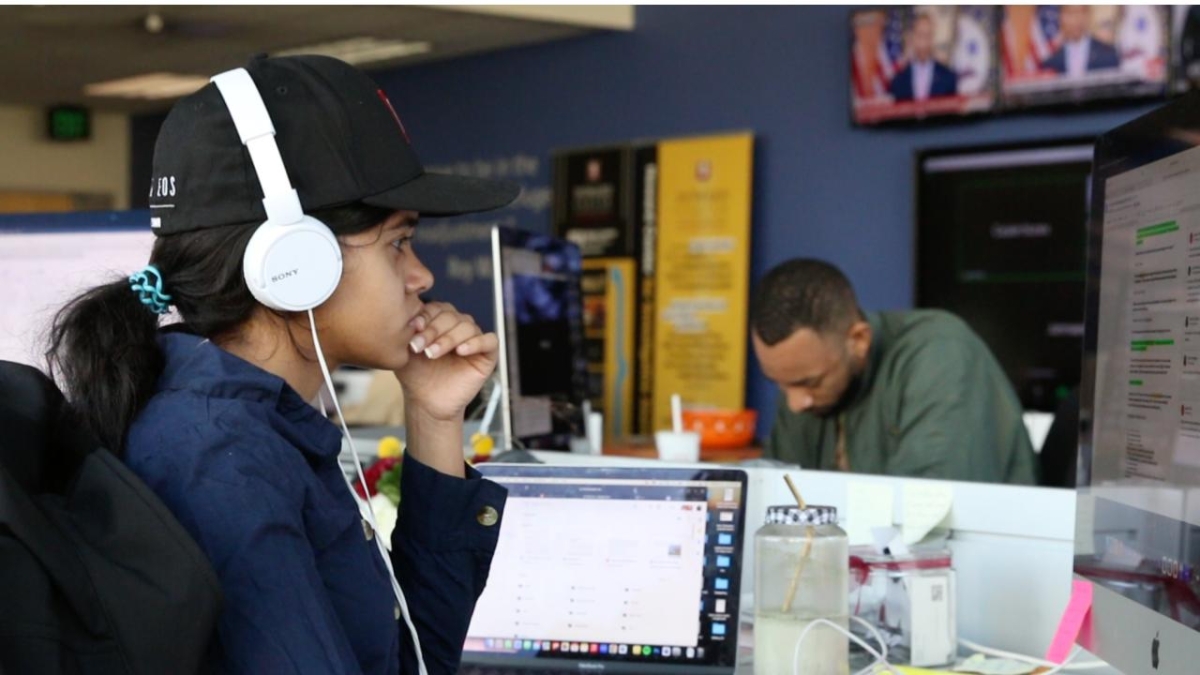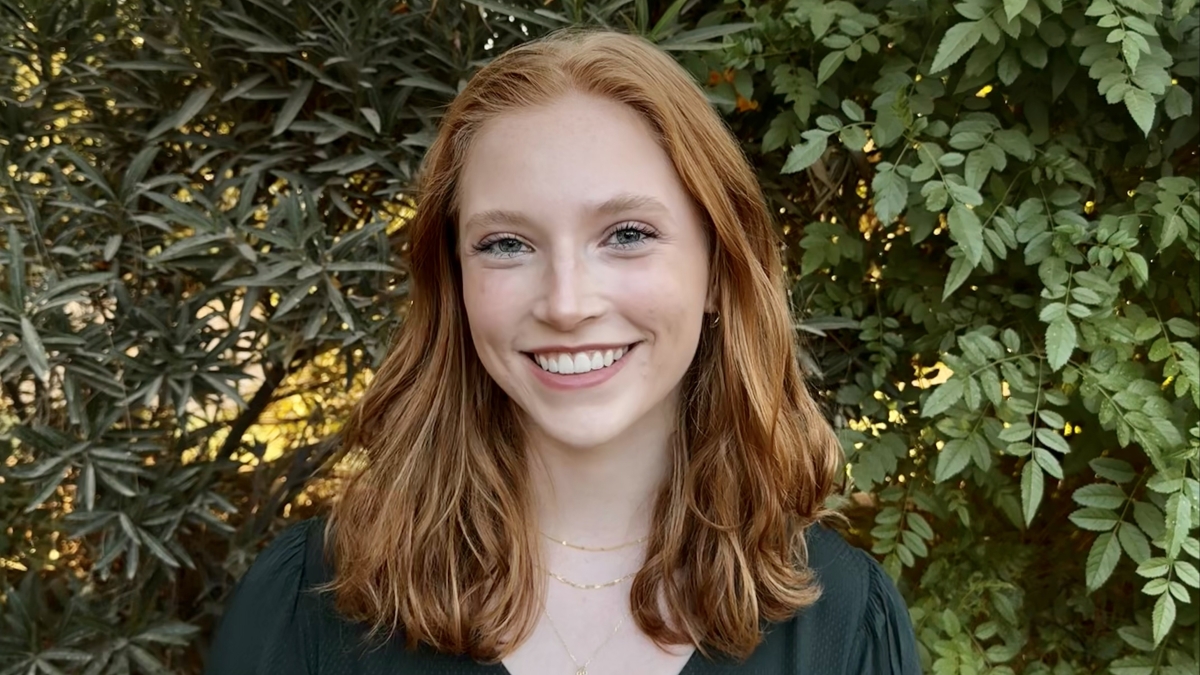Rebuilding civic education key to keeping democracy running, professor says
Skills to analyze and repair government have nearly been lost, Harvard political theorist says at talk capping yearlong ASU series

America has lost the “owner’s manual” to democracy and must focus on restoring civics education to the next generation to reclaim it, according to a Harvard University professor and theorist.
Polarization has not only afflicted the current state of governance, it’s also the reason that civic education has faded away in schools, said Danielle Allen, the James Bryant Conant University Professor and director of the Edmond J. Safra Center for Ethics at Harvard.
She spoke at the final event of the yearlong series “Polarization and Civil Disagreement: Confronting America's Civic Crisis,” held by the School of Civic and Economic Thought and Leadership.
“We don’t have civics because we fight over history,” Allen said, adding that when education leaders from different states tried to establish the K-12 Common Core standards for testing in 2010, they skipped social studies because of conflicts over how to teach history. Some thought there should be a focus on the successes of democracy, and others thought that slavery and the genocide of Native Americans should have more emphasis.
“They couldn’t come to an agreement on how we should narrate the basic tale of American history,” she said. “So now there are no accountability mechanisms for social studies, and that’s why it’s not emphasized.”
Young people need to know the basic skills of how to keep democracy flourishing, such as voting, but they also must learn subjects such as economics, psychology and social sciences to critically judge whether government is working and how to come up with solutions if it’s not, she said.
It’s hard work, said Allen, who also is the principal investigator for the Democratic Knowledge Project, a lab at Harvard that seeks to identify and teach the skills that citizens need.
“We do this work of listening and coordinating and synthesizing a shared vision every time we serve on a committee,” she said. “Democracies have more committees than any other political form because it’s how you do the work to articulate people’s vision of happiness.
“I think we can reclaim that owner’s manual.”
Allen said that civics education can be summed up in the second paragraph"We hold these truths to be self-evident, that all men are created equal, that they are endowed by their Creator with certain unalienable Rights, that among these are Life, Liberty and the pursuit of Happiness. — That to secure these rights, Governments are instituted among Men, deriving their just powers from the consent of the governed, — That whenever any Form of Government becomes destructive of these ends, it is the Right of the People to alter or to abolish it, and to institute new Government, laying its foundation on such principles and organizing its powers in such form, as to them shall seem most likely to effect their Safety and Happiness." of the Declaration of Independence, which — within the paragraph — moves from a vision of the individual to a sense of community.
“To move from ‘I’ to ‘we,’ you need the nitty-gritty skills of getting a group of people around a table to talk about a hard problem,” she said.
That knowledge has almost been lost.
“We did build up such a deep expertise as a society in it, that we actually forgot to name it as a thing that needs to be cultivated from one generation to the next,” she said. “We took it for granted that democratic institutions run on their own.
“But that’s not the case. A healthy democracy depends on a virtuous circle: political institutions that are effective and functioning well and a political culture that supports them with the knowledge and skills that understand how to operate them.”
Allen said that in her own work, she takes an approach that appreciates the founders but is not deifying, and is honest about their errors but not cynical.
“Those are my guardrails about how to think about a fair history for this country,” she said.
“Our shared history is not one thing. It’s many things, good and bad, all the way through, and we need to be honest about all aspects of it and not need to turn it to one thing or another.”
Educational policy in the last quarter-century has been driven by an economic conception of what America needs as a country, she said.
“And we have a lot of truth of what we need, with regard to the dissemination of STEM skills, for example, and the notion of the kind of education that secures a competitive economy,” Allen said.
“We want to have a competitive economy, but we also want to maintain a system of self-government and that requires direct educational attention itself.”
Allen said there are many examples in government that show how norms have eroded, with politicians from both parties.
“(Senate Majority Leader) Mitch McConnell made the comment that ‘Winners make policy and losers go home.’ You can’t sustain a democracy on that principle because democracy depends on the losers wanting to stay attached.”
She said the correct view is that winners lead the process and incorporate the losers.
“You’re seeking leadership, not total obliteration of your adversary.”
Top photo: Harvard University Professor Danielle Allen talks about the second sentence of the Declaration of Independence, "We hold these truths to be self-evident ..." both individually and communally, to define "Democratic Knowledge: A Roadmap for Rebuilding Civic Education" at ASU's Memorial Union on Thursday. Her talk, before more than 160 people, was the final lecture in the "Polarization and Civil Disagreement: Confronting America's Civic Crisis" series, put on by the School of Civic and Economic Thought and Leadership. Photo by Charlie Leight/ASU Now
More Law, journalism and politics

When giving goes global: ASU family invests in students studying media abroad
The dream of studying abroad and making connections globally while in college is often hindered by the substantial cost of traveling and living in a different country. But thanks to the generosity…

ASU, UMD Howard Centers partner with AP global investigations team on yearslong investigation into police use of force
The Associated Press global investigations team, the Howard Centers for Investigative Journalism at Arizona State University and the University of Maryland (UMD), and "Frontline" (PBS) on Thursday…

ASU senior's thesis explores gender, politics and perception
For all its benefits, social media is an environment that remains rife with judgement, especially if you're a public figure, and — according to an Arizona State University student's recent research…